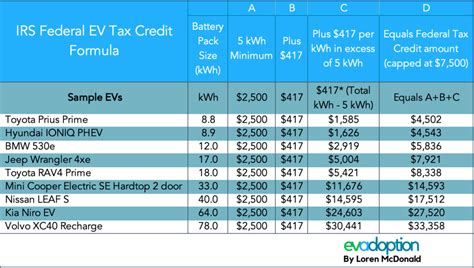Driving Change: What You Need to Know About 2025 Electric Vehicle Rebates
The automotive landscape is undergoing a significant transformation, with electric vehicles (EVs) leading the charge toward sustainable transportation. Governments around the world are incentivizing the transition to EVs with various rebates and subsidies. This article will explore what you need to know about the electric vehicle rebates expected in 2025, how they work, their potential impact, and what to consider if you’re thinking about making the switch to electric.
Understanding Electric Vehicle Rebates
Electric vehicle rebates are financial incentives provided by governments to encourage individuals and businesses to purchase EVs. These rebates can significantly reduce the upfront cost of an EV, making it a more attractive option for consumers. As we move towards 2025, numerous regions are expected to enhance their rebate programs in line with global efforts to combat climate change and reduce carbon emissions.
The Importance of 2025 Rebates
The year 2025 marks a pivotal point in the transition to electric vehicles. Many countries have set ambitious targets to reduce greenhouse gas emissions, and EV adoption is crucial for achieving these goals. As automakers ramp up production of electric models, the increased availability combined with government rebates will make EVs more accessible to the general public.
Current Rebates and What to Expect
Existing rebate structures vary widely across different regions. Some governments offer flat-rate rebates while others use a tiered system based on the vehicle’s price or battery capacity. In anticipation of 2025, many regions are expected to refine these rebate systems. For instance:
- Increased Incentives: Many states and countries are likely to increase their rebate amounts to accelerate EV adoption.
- Income-Based Adjustments: Rebates may be tailored based on the income level of the buyer to ensure more equitable access to electric vehicles.
- Expanded Eligibility: Expect to see more flexibility regarding which models qualify for rebates, including used electric vehicles.
How to Claim Electric Vehicle Rebates
Claiming an electric vehicle rebate usually involves a straightforward process. Here are the general steps you can expect:
- Research available rebates in your area to understand the criteria and amounts.
- Ensure your chosen vehicle is eligible for the rebate.
- Complete any necessary paperwork at the point of sale, or you may need to apply after your purchase.
- Keep all relevant documentation, such as purchase receipts and vehicle registration, for your records.
- Submit your application within the designated timeline to receive your rebate.
The Economic Impact of Electric Vehicle Rebates
The implementation of enhanced rebate programs is expected to have several economic benefits:
- Job Creation: As the demand for EVs increases, so does the need for skilled labor in manufacturing, maintenance, and infrastructure development.
- Energy Savings: EVs typically cost less to operate than traditional vehicles, contributing to individual savings in fuel and maintenance costs.
- Decreased Oil Dependence: A shift to electric vehicles can lead to reduced demand for fossil fuels, promoting energy independence and sustainability.
Environmental Benefits
The primary motivation behind promoting electric vehicle ownership is the environmental benefits they provide. By incentivizing the switch to EVs, governments hope to achieve:
- Reduced Emissions: EVs produce zero tailpipe emissions, contributing significantly to improved air quality.
- Lower Carbon Footprint: When charged using renewable energy sources, electric vehicles can help reduce overall greenhouse gas emissions.
- Encouragement of Renewable Energy: As EV adoption increases, so does the push for clean energy sources to power them, creating a positive feedback loop.
Challenges Ahead
Despite the notable advantages of electric vehicle rebates, challenges remain. These may include:
- Supply Chain Issues: Manufacturing electric vehicles requires materials that may experience supply constraints, ultimately affecting availability and pricing.
- Charging Infrastructure: For mass adoption of EVs, a robust charging infrastructure is essential, especially in rural and underserved areas.
- Public Awareness: Many potential buyers may still be uninformed about the benefits of EVs and available rebates, necessitating better outreach and education efforts.
Conclusion
As we approach 2025, electric vehicle rebates are poised to play a critical role in promoting sustainable transportation. With increased government incentives, educational efforts, and infrastructure improvements, the transition to electric vehicles can be both economically viable and environmentally beneficial. If you’re considering making the switch, stay informed and explore the rebate opportunities available in your area—after all, driving change starts with our choices today.
FAQs
Q1: What changes can we expect in EV rebates by 2025?
A1: By 2025, many regions are likely to increase rebate amounts, expand eligibility criteria, and adjust incentives based on income levels to promote wider access to electric vehicles.
Q2: How do I know if I qualify for an EV rebate?
A2: To determine your eligibility, research your local government’s guidelines for electric vehicle rebates, focusing on vehicle model, purchase price, and any income-based criteria.
Q3: Are there any tax benefits associated with purchasing an electric vehicle?
A3: In addition to direct rebates, many regions offer tax credits or deductions for electric vehicle purchases, helping to further reduce overall costs.
Q4: What is the impact of electric vehicle adoption on the environment?
A4: Electric vehicles produce zero tailpipe emissions, and when charged from renewable energy sources, they can significantly reduce greenhouse gas emissions and improve air quality.
Q5: What are the long-term cost savings of owning an electric vehicle?
A5: EVs generally have lower operating costs than traditional vehicles, leading to savings on fuel, maintenance, and potentially lower insurance rates.
Download Electric Vehicle Rebates 2025
